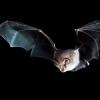A major new study shows that artificial intelligence (AI) is a promising tool for breast cancer detection in screening mammography programmes.

Mammograms acquired through population-based breast cancer screening programmes produce a significant workload for radiologists.
AI has been proposed as an automated second reader for mammograms that could help reduce this workload. The technology has shown encouraging results for cancer detection, but evidence related to its use in real screening settings is limited.
In the new study – the largest of its kind to date –Norwegian researchers compared the performance of a commercially available AI system with routine independent double reading.
The study drew from almost 123,000 examinations performed on more than 47,000 women at four facilities in BreastScreen Norway, the nation’s population-based screening programme.
The dataset included 752 cancers detected at screening and 205 interval cancers, or cancers detected between screening rounds.
The AI system predicted the risk of cancer on a scale from 1 to 10, with 1 representing the lowest risk and 10 the highest. A total of 87.6% of screen-detected and 44.9% of interval cancers had the highest AI score of 10.
Image credit | iStock




